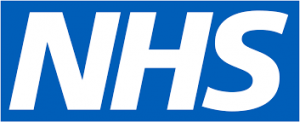
Hope for the National Health Service?
Friday May 20, 2022
I was recently out on my daily walk. Nearing the delightful Valley Gardens in Harrogate, North Yorkshire, I passed two women, one with a small dog on a lead, the other standing watching what appeared to me to be an uncontrollable dog running around in circles somewhat crazily.
As I turned to walk into the next road, I suddenly felt a sharp pain in my lower right leg. I turned and saw the crazed dog which then ran off. The owner exclaimed “Did he nip you?!” As blood poured from what seemed a large puncture wound, I managed to stem the flow temporarily with tissues and bandaged it with a clean handkerchief.
Although the woman offered me her name and address, I was so angry about her lack of control over her animal (and still attempting to stem the bleeding), I politely told her to clear off and get her mad dog put on a lead. I accept in hindsight that I should have taken her name and address but I was now more concerned in seeing a doctor as it was a dog bite.
Arriving later at the reception of my GP practice I was informed by a staff member that “We don’t do walk-ins” and that even if they did, they only had small injections of anti-Tetanus vaccine and that I needed a larger one – only available at Accident & Emergency (A&E).
I stated that I didn’t want to waste a doctors’ time at A&E as this was not a major injury. However, after consulting with a GP, they were adamant that I visit the Casualty Dept at Harrogate Hospital.
From previous experience of the waiting time at A&E – some five hours – I entered and was amazed to find only two patients waiting (at my previous visit the scene had resembled a warzone). I was treated by what appeared to me to be a mature experienced female doctor after only waiting five minutes. She conducted an examination of my injury, cleaned and dressed the wound before directing a young nurse to administer the anti-Tetanus injection.
Out of curiosity, I asked her why the Dept was so quiet and she said that Harrogate was a small hospital and although it can get very busy, it is not like Leeds A&E where she said it is always ‘manic’ (the population of Leeds is 780,000, Harrogate 75,000).
Having left A&E so impressed with the level of service and a total attendance time of twenty-five minutes, I was then obliged to wait thirty-five minutes at the hospital pharmacy for a prescription given to me for a course of antibiotics. Over the course of the next week, I have to acknowledge that I received excellent after-care treatment from the nurse at the aforementioned GP practice; changing the dressing twice.
This service and professionalism was of course without any cost – provided by the National Health Service.
Meanwhile, away from A&E, over 6 million people in this country are still waiting for specialist treatment e.g. cancer patients, those awaiting hip and knee operations and similar complex medical conditions. Many have been waiting two years and in some instances more. It has been reported that some cancer patients have died still waiting for treatment.
Such is the extent of the backlog that a recent report by the Daily Mail newspaper revealed that 87% would reluctantly pay for private medical treatment rather than wait for an NHS appointment, whenever that may be. Hundreds of thousands who do not have private medical insurance have admitted to being prepared to go into debt or utilise some of their savings to pay for this treatment.
It is generally accepted that the impact of the recent pandemic has had a dramatic effect on NHS resources, but waiting lists for specialist treatment were still lengthy prior to the outbreak of Covid-19.
For the majority of people even obtaining a face to face visit to their local GP can be negotiating through a minefield of endless waiting on the telephone, promises that a doctor will call them back to initially diagnose their symptoms and then decide whether they should be seen in the surgery and, of course, when. Again, waiting times will be dependent upon where you live and the size of population and how many GP practices serve that area.
What is painfully (excuse the pun) apparent is that the NHS with a massive budget and being the largest employer in Europe is woefully inefficient, wasteful of money, managerially inept and bureaucratically top-heavy.
Again, quoting from the Daily Mail – a publication which has been conducting a crusading campaign to improve the Health Service – has reported that the NHS has over 675 (yes, six hundred and seventy five) staff who are paid over £150,000 per annum.
Here are some examples:
Dr. Michael Van Der Watt, Chief Medical Officer of West Hertfordshire Hospitals – £310,000 per annum.
Dame Jackie Daniel, Chief Executive of Newcastle-upon-Tyne Hospitals – £310,000 per annum.
Dr. Bruno Holthof, Chief Executive of Oxford University Hospitals – £300,000 per annum.
And so it goes on. Not forgetting of course the hundreds of managers below these grades who themselves earn over £100,000 per annum.
This is in contrast to the UK Prime Minister who earns £157,000 per annum and a Secretary of State for Health and Social Care who earns £149,400 per annum.
From a personal observation, I was accompanying a relative to A&E just prior to the Covid outbreak and sat with her while she was waiting to see a doctor. Unlike my recent visit, the same A&E was particularly busy – it was early evening and we waited some forty-five minutes to see a doctor (although admittedly this is still relatively quickly compared to departments elsewhere).
During this time I noticed six patients being admitted on stretchers, each accompanied by one or two paramedics. They were all waiting to hand the patients over to the doctor or person of first referral in casualty. I couldn’t contain my curiosity and walked outside and, low and behold, I saw six ambulances parked unattended. All were emergency vehicles with their crew inside casualty waiting to hand over their patients for treatment.
Needless the say, we now have six emergency response ambulances with highly qualified paramedics hanging around casualty not being able to respond to any other immediate emergency call. Perhaps one of the managers of £150,000 per annum could have spent time in A&E and developed a better and more efficient system for the transfer of patients to casualty staff.
Over many, many years, it has become clear that no matter how much taxpayers’ money is ‘thrown’ at the NHS it is ‘absorbed’ with no noticeable benefit to the taxpayer.
If one were to utilise the services of any of these ‘managers’ in a meaningful way, which could perhaps have applications for the UK NHS, perhaps sending one or two to study how efficient the health service is in South Korea would be beneficial.
Ranked No. 1 in the world for its health services according to the CEO World Magazine Health Care Index. Other world rankings are: Taiwan (2), Denmark (3), Austria (4), Japan (5), Australia (7), France (7) and Spain (8) and Belgium (9). The UK comes in at No. 10. Surprisingly, the USA is ranked at No. 30.
While computer systems are vital in an organisation as large as our NHS, and certainly managerial expertise is still required in numerous departments, perhaps an in-depth study of South Korea and Taiwan may go towards improving the efficiency of the NHS. This could then be combined with a ruthless cull of those managers ‘pushing pens’ and claiming £150,000 per annum for the privilege!
To date, nobody has managed to solve the crisis within the NHS. But it is never to late to learn. Examples from these other countries could in fact teach the NHS how to become a genuine world leader in management efficiency.
Finally, in contrast to the 675 managers paid over £150,000 per annum, the average salary for a newly qualified doctor in a hospital is £38,000 per annum, and a fully qualified nurse is £24,007 to £30,616 per annum. In London a senior nurse might hope to earn between £31,365 and £37,890 per annum.
When the population require medical treatment, for whatever reason, doctors, nurses, paramedics and other front-line staff are what count – not overpaid administrative managers.
